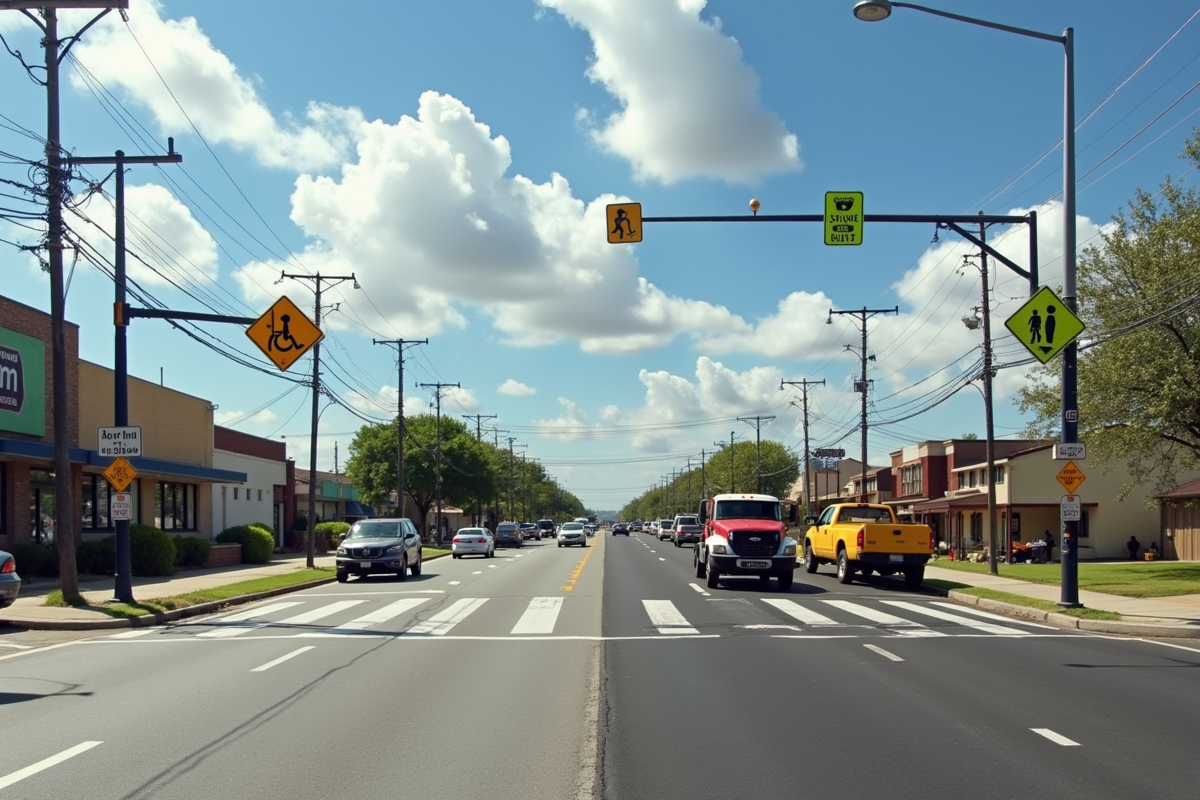
Meta Description: Analyzing 40 states' transportation legislation focused on traffic safety enhancements, license system reforms, and addressing equity concerns in vehicle regulations.
Content: As traffic fatalities remain a pressing national concern, state legislatures are advancing a wave of transportation reforms targeting road safety, licensing systems, and accessibility. With over 600 bills introduced across 40 states in early 2025, this legislative surge combines stricter enforcement mechanisms with innovative approaches to protect vulnerable road users while raising new equity considerations.
Core Safety Objectives: Protection and Prevention
Two primary policy threads emerge from recent legislation:
Enhanced Protections for Motorcyclists and First Responders
Combatting Impaired Driving
Licensing Reforms and Specialized Plates
States are overhauling credentialing systems while commemorating community groups:
- Connecticut exempts seniors/veterans from park fees via HB05141
- Georgia creates Delta Sigma Theta Sorority plates through HB50
- Minnesota SF285 establishes cost-sharing models for trunk highway projects
Technology and Infrastructure Modernization
Legislation addresses both emerging tools and aging systems:
- Utah SB0138 regulates license plate reader use
- Minnesota SF75 funds autonomous mower research
- Connecticut HB05654 expands parking spaces for parents with young children
Equity Considerations and Implementation Challenges
While many bills aim to improve accessibility, analysis reveals complex impacts:
- Hawaii HB875 penalizes ride-share discrimination against service animals
- Connecticut HB05463 prohibits license suspensions for unpaid fines
- Oklahoma HB3587 creates medical transport standards for disabled patients
Implementation Hurdles:
- Training costs for new motorcycle signage systems
- Revenue impacts from fee exemptions (projected 15% DMV income reduction in CT)
- Privacy concerns around automated enforcement technologies
Regional Policy Divergence
Coastal vs. rural approaches highlight different priorities:
| State Group | Focus Area | Example Legislation |
|---|---|---|
| Northeastern | Urban Mobility | NY A02063 - Verrazano Bridge toll rebates |
| Western | Rural Access | OK HB535 - Regional Rural Transportation Task Force |
| Pacific | Specialized Populations | HI SB1196 - Rideshare fees funding school routes |
Future Outlook
With 72% of analyzed bills incorporating sunset provisions, legislators are testing time-bound solutions before permanent adoption. Upcoming debates will likely focus on:
- Balancing automated enforcement with privacy rights
- Expanding electric vehicle infrastructure funding
- Standardizing disability accommodations across state lines
As these policies take effect, their success may hinge on addressing unintended consequences revealed in early implementation phases - particularly for low-income drivers and communities over-reliant on personal vehicles.
Related Bills
Relating to the issuance of a citation for the offense of the unauthorized use of parking designated for persons with disabilities.
Disabled veterans license tags; authorize tags to be labeled.
An Act Concerning Driver's License And Identity Card Renewals At Veterans' Stand Down Events.
Removes the requirement that the applicant for a Bronze Star Medal license plate pay a registration fee or transfer charge.
Waives the fees for vehicle identification number inspections for veterans, including active duty military personnel and members of the National Guard and military reserves.
An Act to Require Motor Vehicle Certificates of Registration to Include a Space to List an Emergency Contact
Vehicle Transactions Deployed Military Families
Relating To Civil Identification Cards.
An Act Concerning The Offering Price Of A Motor Vehicle By A Car Dealer.
Motor vehicles; creating the Jamie Lea Pearl Act; requiring medical needs motor carriers to have certain tax exempt status; effective date.
Related Articles
You might also be interested in these articles
